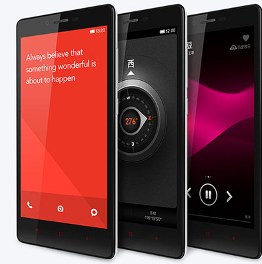  The Chinese mobile manufacturer has got involved in security related issues in India. IAF (Indian Air Force) has issued a circular saying that Xiaomi phones are a security threat. The company believes that it may be due to some misunderstanding of some issues and it will clarify its position to IAF.
"We are trying to get to the bottom of this. So far, we have not heard anything from the IAF or any other authorities and have only read media reports. We will reach out to authorities and engage with them to address any concerns that they might have," said Hugo Barra, Vice President, Xiaomi.
In a statement, the company said that it would like to clarify a few points to assure users that it treats their privacy seriously. Following are the points issued by the company in a press statement, on Monday:
1. We provide opt-in secure Internet services that greatly benefit users.
We offer various opt-in Internet services that bring great user benefits, are free of charge, and require personal data to be stored in the cloud. For example:
. Mi Cloud enables users to back up their data as well as sync it to other devices.
. Cloud Messaging allows users of Mi devices to exchange text messages free of carrier charges by routing messages via IP instead of carrier’s SMS gateway.
These services are optional (opt-in). Users can turn them on and off at any time. Users can also opt to use similar services from other Internet companies instead, such as Google, Whatsapp, Dropbox and others.
2. We do not collect user data without permission
We do not collect any data associated with services such as Mi Cloud and Cloud Messaging until the user provides explicit consent by turning on the corresponding service(s). Even after users have turned on these services, they can turn them off at any point of time.
We take rigorous precautions to ensure that all data is secured when uploaded to Xiaomi servers and is not stored beyond the time required.
3. We use very high encryption and security standards to protect user data
. We encrypt data using AES-128 standard before storing, which makes it practically impossible for anyone to steal this information.
. We protect user passwords and identifiers such as IMEI number using cryptographic one-way hash functions *before* they're uploaded, which means we never actually receive the original information.
. No single person, including Xiaomi employees, can decrypt user data stored in Mi Cloud, even if they get access to the hard drives.
. We use extremely strict access control policies with multiple authorizations being required for engineers building services that access any personal data.
. All access to servers is logged and audited.
4. We are moving our Indian users' data to servers outside of China, and to India in 2015
Since early 2014, we have been migrating our services and corresponding data for Indian users from our Beijing data centers to Amazon AWS data centers in Singapore and USA. Parts of this migration will be completed by the end of October, and all of it will be completed by the end of 2014. In 2015, we plan to launch a local data center in India to serve the needs of (and store data for) our Indian users.
These efforts help significantly improve the performance of our services and also provide some peace of mind for users in India, ensuring that we treat their data with utmost care and the highest privacy standards.
5. The concerns raised by F-Secure have been fully addressed
We believe the advisory circular issued by IAF is based on events about 3 months back. It refers to the F-Secure test done on the Redmi 1S in July 2014 about the activation of our Cloud Messaging service (which enables users to send text messages for free, similar to other popular messaging services).
We immediately addressed the concerns raised, which was directly acknowledged by F-Secure 4 days later. |